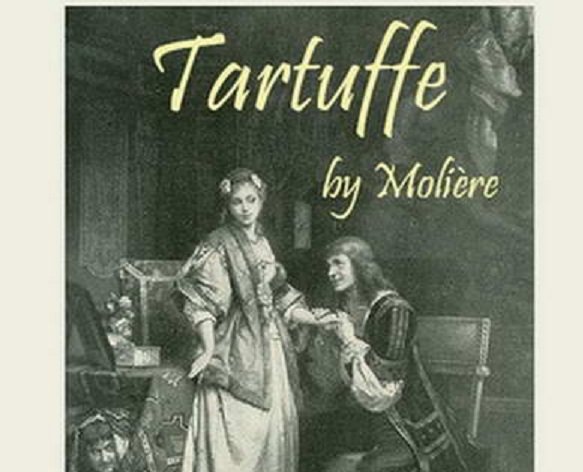About "Tartuffe" by Molière /part 3/
The drama of exposure to comedy is entangled in its intrigue, not just to keep the dynamics in it. He evolved with the multiplication of the mischief of the hypocrite, with the expansion of the morally destructive power of the two-eyed, whose dramatic embodiment in the play is Tartuffe. It could be said that the drama in the Tartuffe comedy escalates, rising to a new degree in the fifth action when, owing to the deceitfulness of the deceiver and the infinite naivety of Orgon, the family of the affluent good-natured citizen barely finds himself on the street without a home and without funds.
An indisputable agent for pushing the dramatic tension into the classical comedy "Tartuffe" is the pious pirate. Moliere performs brilliantly a genius of his own idea - to introduce the main actress of the play to the second stage of the third act. Thus we have the opportunity, in a purely dramaturgical way, to pour over the controversy surrounding the morality of the guest in the house of the Orgon, thanks to the contradictory assessments of the two opposing groups in the multiple family, to get some idea of Tartuffe even before he came out on stage . The discrepancy in the judgments of people in a family circle about one person simultaneously supports drama and laughter in the first two acts of comedy. For the controversial Mrs. Pernel, found in her son's house, Tartuff, is "a man like such a famous person," who "throbs in the face of sin of wrath and anxiety, and devotes himself to God." For the deeply committed to the fate of the Orgon family, infinitely devoted to the young heirs in the home, maid Dorina, the assaulted guest is just a hypocrite. No less categorical in the estimates of the intruder in his father's home is the son of Orgon Damius. He visibly exhorts a grandmother blinded by old-age credentials, Mrs Pernel, that "with such a man we will have a scandal, and a great one, without a shame and a shame." Damius first gives a vow of concern to the family about the embarrassing postponement of father Oorgon to the marriage that Mariana's daughter, his sister, wants to conclude with Valer in love with her. He prefers to think first of all to Cleanth, his mother Elmira's brother, that "Tartuffe is confused here, and if he (Orgon) lies, he prevents him from solving the matter today. the father would have to decide rather the fate of Mariana who "only loves Valer".
The group of indignants of the impudence of the implacable two-year-old Tartuffe is also the already mentioned Clement, the brother of Elmira, whom the researchers of this work of Molière characterize most often as a protagonist; as a protector and exponent of "common sense" in comedy. It is known that classicist Molière often introduces into his comedies a hero who directly expresses the author's views on the collisions of the spectators and the philosophy of their opponents. As an incompetent and irreconcilable judge, Cleant is the first to attack, so to speak, "from his stubbornness", his miserly deceived son-in-law, Orgon. Clemant gains the boldness of blaming his brother-in-law Orgun as soon as the most comical and, in fact, the most dramatic premonition of the first act of the comedy "Tartuffe" is played, in which the once-retired, after a long absence, the home and the witty Dorina. Molière has brilliantly created the verbal struggle between the mistress of Dorina's health, who is blinded by Tartuffefoolish godliness Ogoron. Visiting only the care of his guest, TartuffeOorgon, careless of the health of his wife with a tragicomic insistence, he always asks, "What about Tartuffe?" This queasy and ridiculous tragic subject is resumed four times in the celebrated scene, (the sudden sickness of the wife), exclamation "Ah, the poor man!", also inappropriately pronounced four times. The ultimate disinterest of the deluded Orgon about the state of Elmira greatly diminishes the joy of the viewers. Because they perceive that the master's favor with the intruder in him has exceeded the sensible measure, estranged perhaps the fatally wife of Orgon by his wife. Maybe as a kind of lesson for her blind man, Elmira, with an extraordinary rich artistic, "punishes" his naive loyalty later, playing as a deliberately hidden viewer, the role of "passionately in love" in Tartuffe.

good post
& good information
interesting artical
you are welcome
Interesting story, write more such posts, they are very good!
thanks
No problem, Good Luck :)
Goodness! I haven't read Tartuffe in over 20 years. Thanks for reminding me about Moliere's comedic genius.